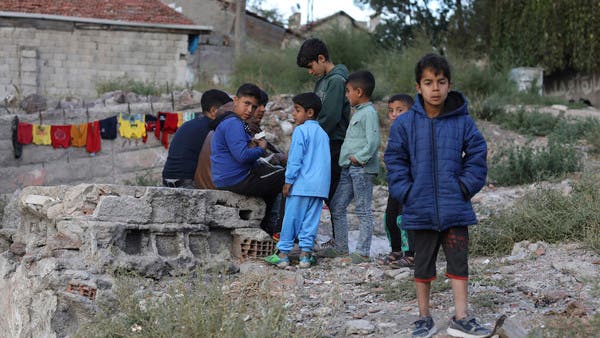US says fight against human trafficking must include boys, young men

The United States on Thursday denounced the little-known but growing global phenomenon of boys and young men caught up in forced labor trafficking.
The condemnation came as part of a wider criticism of what Secretary of State Antony Blinken called “concerning trends” in human trafficking in general.
In presenting the State Department's annual 188-country trafficking report, Blinken called out the rise in forced labor as worldwide supply chains were disrupted by the COVID-19 pandemic.
“Exploitative employers use a host of tactics to take advantage of lower paid and more vulnerable workers,” he said.
Blinken also pointed to a rise in labor trafficking using online scams.
The report lays out how traffickers in Myanmar, Malaysia, Ghana, and Turkey, among other countries, were able to take advantage of pandemic-era conditions to deceive adults and children around the world with fake job offers posted online.
Blinken also emphasized the report's findings on the trafficking of young boys, a little-known plight that has seen a sharp increase in recent years.
“The percentage of boys identified as victims of human trafficking rose fivefold” between 2004 and 2020, Blinken said, citing a separate United Nations report — a higher proportion than among girls, women, or men in the same period.
“For years there's been a widely held (perception) — but incorrectly — that trafficking affects exclusively female victims. This false perception has had some quite frankly devastating, intangible consequences” as fewer resources are allocated to support boys caught up in human trafficking, he said.
“The reality is that any person, regardless of sex, regardless of gender identity, can be targeted by human traffickers,” Blinken added.
The top US diplomat praised local anti-trafficking efforts in the Seychelles, Hong Kong and Denmark.
The State Department report also lists countries that Washington does not believe are taking the fight against human trafficking seriously, including Afghanistan, China, Cuba, Eritrea, North Korea, Iran, Russia, South Sudan, Syria and Turkmenistan.
Nations that appear on such lists can be punished with US sanctions or have US aid revoked.
This “Eyes on Trafficking” story is reprinted from its original online location.
Fair Use Notice: The PBJ Learning Knowledge Vault is dedicated to advancing understanding of various social justice issues, including human trafficking and related topics. Some of the material presented on this website may contain copyrighted material, the use of which has not always been specifically authorized by the copyright owner. We are making such material available in our efforts to promote education and awareness of these important issues. There is no other central database we are aware of, so we put this together for both historical and research purposes. Articles are categorized and tagged for ease of use. We believe that this constitutes a ‘fair use' of any such copyrighted material as provided for in section 107 of the US Copyright Law. In accordance with Title 17 U.S.C. Section 107, the material on this site is distributed without profit to those who have expressed a prior interest in receiving the included information for research and educational purposes. For more information on fair use, please visit: “17 U.S. Code § 107 – Limitations on exclusive rights” on Cornell Law School's Legal Information Institute.
 ABOUT PBJ LEARNING
ABOUT PBJ LEARNING
PBJ Learning is a leading provider of online human trafficking training, focusing on awareness and prevention education. Their interactive Human Trafficking Essentials online course is used worldwide to educate professionals and individuals how to recognize human trafficking and how to respond to potential victims. Learn on any web browser (even your mobile phone) at any time.
More stories like this can be found in your PBJ Learning Knowledge Vault.
EYES ON TRAFFICKING
This “Eyes on Trafficking” story is reprinted from its original online location.
ABOUT PBJ LEARNING
PBJ Learning is a leading provider of online human trafficking training, focusing on awareness and prevention education. Their interactive Human Trafficking Essentials online course is used worldwide to educate professionals and individuals how to recognize human trafficking and how to respond to potential victims. Learn on any web browser (even your mobile phone) at any time.
More stories like this can be found in your PBJ Learning Knowledge Vault.
